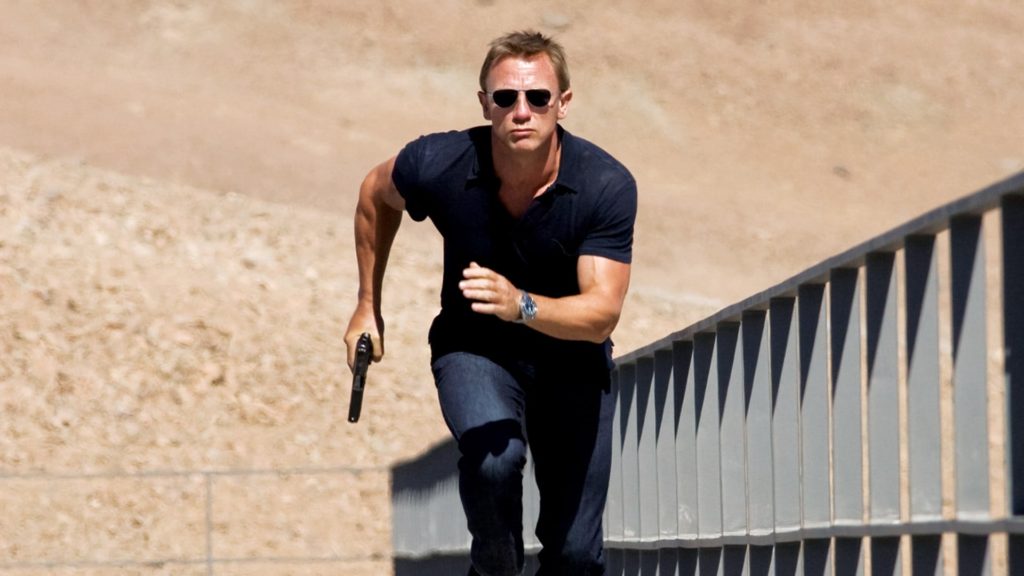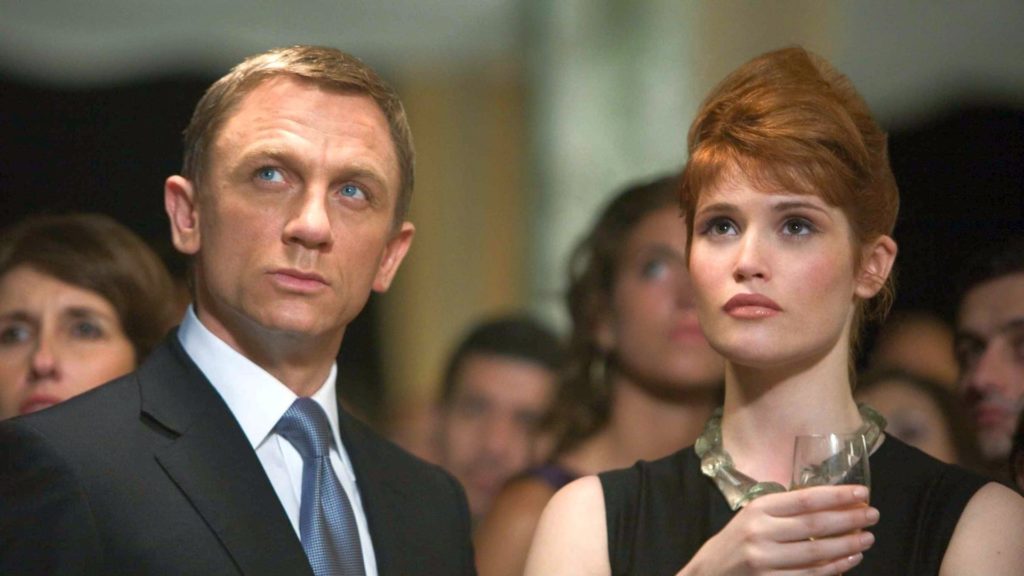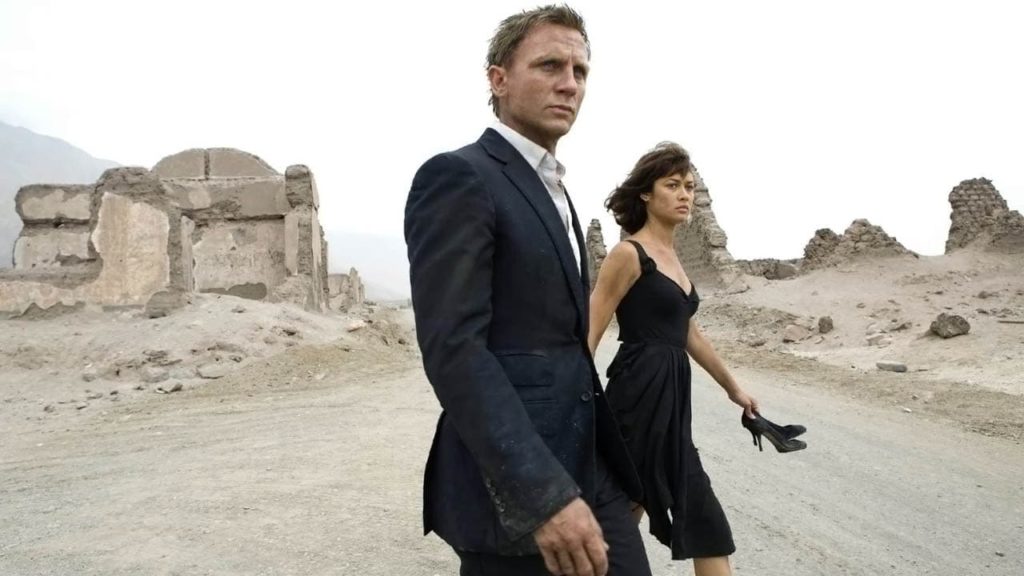In 2009, when I was a 20-year-old junior in college, two of my buddies and I had a few drinks and stumbled over to the student theater. It was showing a cheap Friday night double feature of Casino Royale (which I had seen before) and Quantum of Solace (which I had not).
I cannot emphasize enough how perfect of a movie viewing experience that was. We were laughing and whooping and cheering and fist pumping for over 3 hours. It made Quantum of Solace seem not like a mediocre sequel grasping desperately for a compelling story to cling to.
It felt, instead, like an extended and satisfying coda to one of my favorite action movies of the previous decade, taking some threads from Casino Royale and running with them, plus a new anti-American conspiracy plot. In my tipsy mind, Quantum of Solace was a delightful film with great action scenes.

A couple months later, my friends and I all decided to make Top 100 Movies lists. Reader, I am ashamed. I was still riding the high of that amazing theater experience, and I ranked Quantum of Solace my #82 favorite movie. Of all time.
Looking back on that list, there’s a lot to be embarrassed about, but that pick might be the most embarrassing. Not because the movie isn’t good (though it isn’t) but because it’s so damn inconsequential.
(To give 20 year old me a little bit of credit for my 2009 Top 100 list, I was slightly more daring with classics and art films than my friends. While their lists were entirely 80s, 90s, and 2000s genre/blockbuster/filmbro stuff, that was only, like, 2/3rds of mine.)
I am far from a Bond completionist, and such a task seems daunting. I can’t say for sure whether Quantum of Solace’s attempts to be a direct narrative sequel has much precedent in Bond’s history. But it really feels unnaturally attached to Casino Royale to its detriment, attempting to ride the emotional payoff of that film’s final hour for its own impact. We get pivotal, emotional scenes in Quantum of Solace with, like, the 6th and 7th most important characters of its forebear reappearing.

Bond’s driving objective in Quantum of Solace is finding revenge and moving on from Vesper; yet the final scenes of Casino Royale had already done that! The stinger of Casino Royale shows Bond emotionally detaching himself, turning into the killing and unflappable spy machine he’s known as, in the wake of his tragic loss. So the entire story of Quantum of Solace feels like a bit of a retread — or at least a theme stretched thin. It’s a concept that maybe could have worked with the right writing and story shape, but certainly never fully clicks here. (I’ll add now that it has an incredibly shitty title.)
What it really feels like is the Bond franchise toying with the modern image of a serialized franchise that grows and expands rather than recurring in discrete episodes. It came out just as the superhero movie industrial complex began to take shape — the same year as Iron Man and The Dark Knight — and it feels beholden to similar narrative impulses.
Quantum of Solace raises the stakes (international coup!) on a surface level while somehow feeling so much more trivial and disposable than Casino Royale. Characters and motivations blur together; main Bond girl Camille (Olga Kurylenko) is a screenwriting catastrophe, showing about 12 different personalities in as many scenes. It’s especially stark when Vesper was the best part of Casino Royale.

The film’s action sequences are largely a letdown, too. They feel overlong and under-cooked. The basic Cartesian geometry of the action scenes — who is where and when? — is so botched that the chases and fighting often feel like a chaotic haze of fisticuffs and/or explosions.
There are a few standout segments, though. A shootout in an opera house has editing that borders on the impressionistic, tying together the theatricality of the opera singers with the choreographed action of our super-spy. And there’s a leap from a plane near the end of the film that so drastically simulates the scary speed of falling I almost got vertigo.
But the movie never figures out how to justify its existence. Despite being more than a half hour shorter than Casino Royale, it still feels like it’s stretching. Judi Dench is excellent and Daniel Craig is still pretty good, but it’s not enough. Sorry, #82.
- Review Series: Top 100 (2009 List)
Is It Good?
Not Very Good (3/8)
Dan is the founder and head critic of The Goods. Follow Dan on Letterboxd. Join the Discord for updates and discussion.

